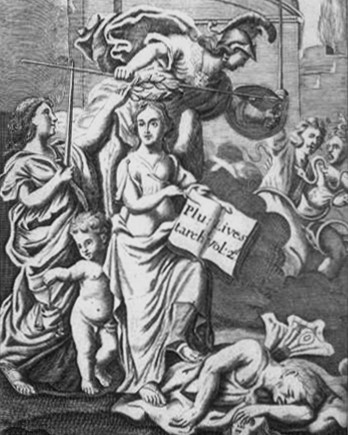Description
“Plutarch’s Lives,” also known as “Parallel Lives,” is a series of biographies written by the ancient Greek historian and biographer Plutarch in the early 2nd century AD. The work pairs biographies of famous Greek and Roman figures, comparing their virtues and vices to draw moral lessons and highlight the universal qualities of leadership and character.
Structure and Content The “Lives” are arranged in pairs, each consisting of one Greek and one Roman figure. Plutarch provides detailed accounts of each individual’s life, achievements, and character, followed by a comparison essay. Notable pairs include Alexander the Great and Julius Caesar, Demosthenes and Cicero, and Theseus and Romulus. Through these biographies, Plutarch explores themes such as justice, bravery, wisdom, and the impact of personal conduct on public affairs.
Historical and Literary Significance Plutarch’s work is renowned not only for its historical value but also for its literary quality. His narrative style combines historical detail with engaging storytelling, making the lives of these ancient figures accessible and compelling. The “Lives” have been a significant source of inspiration for writers and thinkers throughout history, influencing works of literature, philosophy, and political theory.
Moral and Educational Purpose Plutarch’s primary aim was moral instruction. By presenting the lives of great men, he sought to offer examples of virtue and vice, hoping readers would emulate the former and avoid the latter. His insightful observations on human nature, leadership, and ethics have made “Plutarch’s Lives” a timeless resource for those interested in understanding the qualities that define great leaders and the moral lessons derived from their lives.
Enduring Legacy “Plutarch’s Lives” remains a cornerstone of classical literature, widely read and studied for its rich historical insights and profound moral reflections. Its influence extends beyond history and biography, impacting literature, drama, and philosophy, as evidenced by its enduring presence in educational curricula and literary canons.





Ukamaka –
Plutarch’s ability to delve into the personalities of figures like Alexander the Great and Julius Caesar makes ‘Lives’ a compelling read, offering a nuanced perspective on their motivations and legacies.
Abdulrahaman –
Even centuries after its writing, ‘Lives’ remains relevant, offering timeless wisdom on leadership, virtue, and the complexities of human nature. It’s a testament to Plutarch’s enduring influence.
Anna –
Plutarch’s ‘Lives’ offers a fascinating glimpse into the lives of notable Greeks and Romans, providing profound insights into their characters and the events that shaped history.
Moses –
Plutarch’s storytelling prowess brings ancient history to life in ‘Lives’, weaving together narratives that are both informative and captivating, making it accessible to readers of all backgrounds.